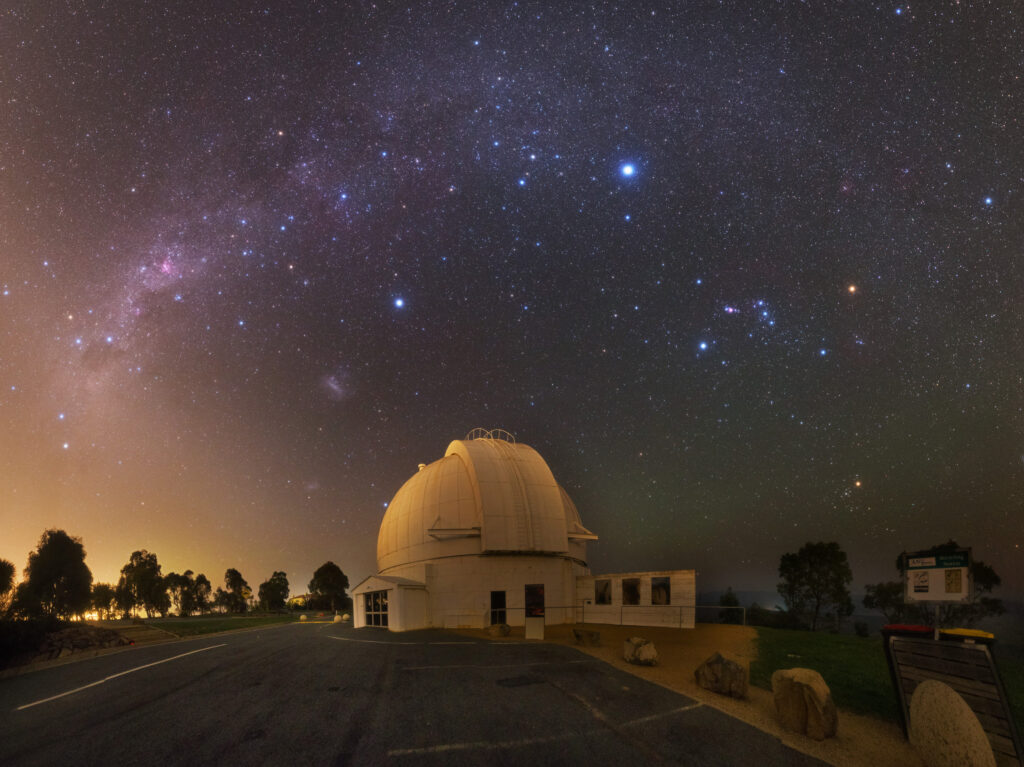
At Mount Stromlo Observatory you can see spectacular views over Canberra and the Brindabella Mountains and make use of the barbeque and picnic facilities. Discover the site's history; from its use as a World War II optical munitions factory to the Observatory's post-2003 recovery. Stroll past the only operational research telescope at the Stromlo Satellite Laser Ranging Observatory, part of the Australian National University's site. Mount Stromlo Observatory is the headquarters of the ANU Research School of Astronomy and Astrophysics, a world-respected community of researchers exploring the heavens.
Canberra is set to host four major international conferences throughout October and into November, significantly enhancing the city’s reputation as a premier destination for global knowledge exchange. The events will span diverse fields such as space science, artificial intelligence, human-computer interaction, and healthcare, drawing over 1,200 leading thinkers, innovators, and practitioners from around the world. This influx of international experts is expected to contribute substantially to Canberra’s visitor economy and research ecosystem.
The series of conferences begins with the Scientific Detector Workshop from October 6-10, hosted by the Australian National University (ANU) Research School of Astronomy and Astrophysics. The event will take place at Mount Stromlo and the award-winning ANU Research School of Physics building. Highlights include a public lecture and a stargazing event featuring Nobel Laureate Professor Brian Schmidt.
Exploring Human Emotions and AI
Following closely, from October 8-11, Canberra will welcome the International Conference on Affective Computing and Intelligent Interaction (ACII). This year’s theme, ‘Socially Responsible Affective Computing,’ will delve into the design of systems capable of recognizing, interpreting, and simulating human emotions. A gala dinner at the National Gallery of Australia will be among the event’s key attractions.
The ACII conference underscores Canberra’s growing influence in the field of digital technology and systems design, aligning with global trends towards more empathetic and responsive AI systems. As AI becomes increasingly integrated into everyday life, the insights generated here could shape future developments in technology and human-computer interaction.
Advancements in Multimodal Interaction
Continuing the focus on cutting-edge technology, the 27th International Conference on Multimodal Interaction (ICMI) will take place from October 13-17. This event will convene global leaders in artificial intelligence and human interaction research, further cementing Canberra’s role as a hub for digital innovation.
ICMI will explore the latest advancements in multimodal interaction, a field that combines various forms of communication, including speech, gesture, and facial expressions, to create more intuitive and effective user interfaces. The conference will highlight how these technologies can be harnessed to improve user experience across numerous applications, from consumer electronics to healthcare.
Innovations in Healthcare
In November, the International Forum on Quality and Safety in Healthcare will gather global health leaders focused on patient safety innovation. This event will explore inclusive healthcare approaches that integrate climate considerations, equity, Indigenous knowledge, and leadership for systemic, lasting impact.
Healthcare experts will discuss strategies to enhance patient safety and quality of care, emphasizing the importance of a holistic approach that considers environmental and social factors. This aligns with a growing recognition of the interconnectedness of health systems and broader societal issues.
“Canberra offers a distinctive and inspiring setting for international conferences — combining world-class research institutions, iconic cultural venues, and access to national decision-makers,” said Michael Matthews, CEO of Canberra Convention Bureau. “We are proud to support these events which elevate Canberra on the world stage.”
The announcement of these conferences comes at a time when cities worldwide are vying for recognition as centers of innovation and intellectual exchange. Canberra’s ability to attract such high-profile events reflects its strategic investments in research infrastructure and its commitment to fostering a vibrant intellectual community.
Looking ahead, the success of these conferences could pave the way for Canberra to host even more international events, further boosting its global profile and economic prospects. As the city continues to build on its strengths, it stands poised to become a leading destination for international conferences across a wide range of disciplines.






